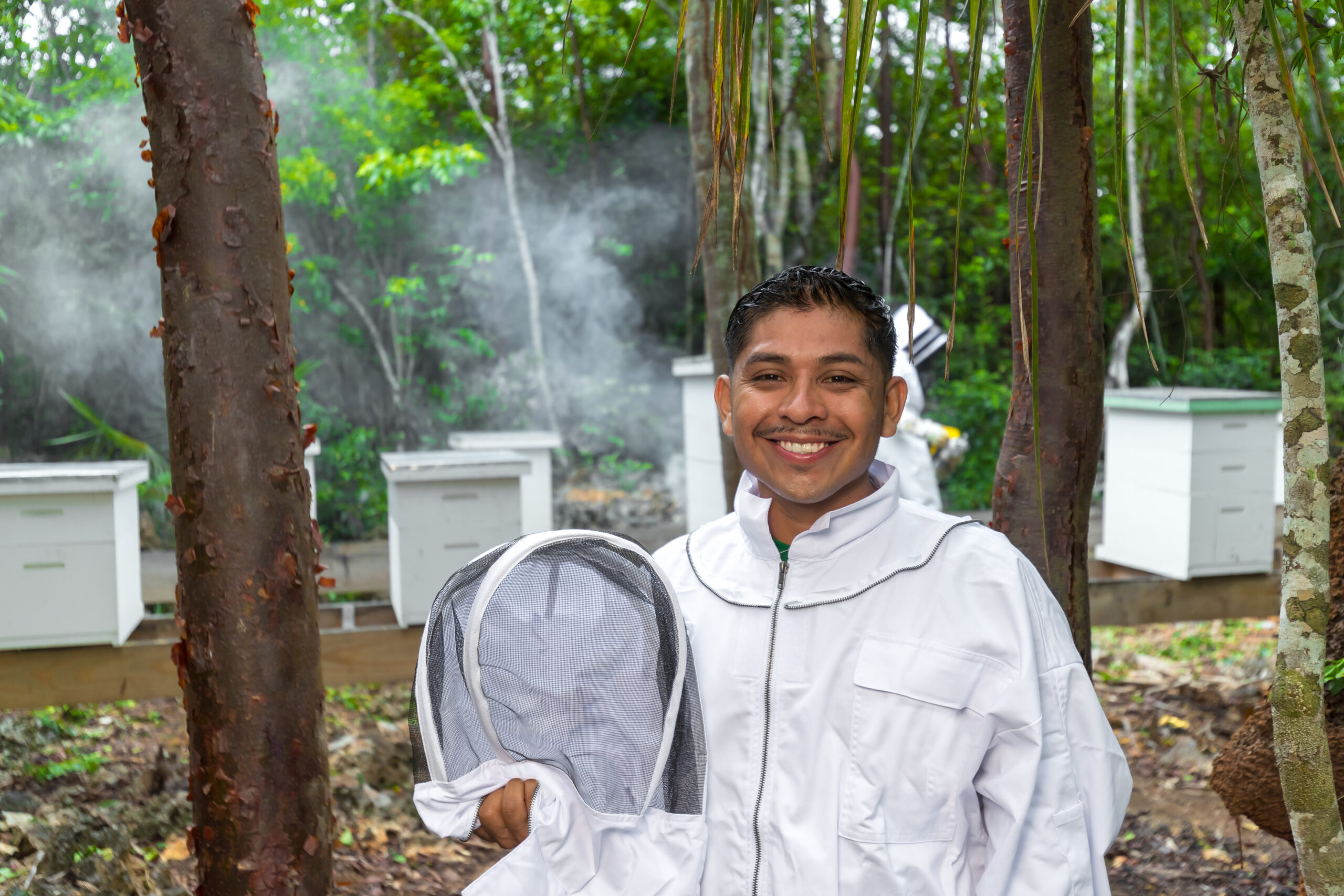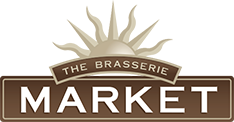By Louise FitzRoy
“Challenging and fun at the same time.”
The Brasserie Bees project began in 2016, led by Brasserie Beekeeper Efrain Alarcon, an experienced beekeeper from Oaxaca, Mexico.

“2020 was a bad year for everybody. Even for the bees. We had a lot of rain in the Cayman Islands which meant that they couldn’t go out and feed from the flowers and collect the nectar and the pollen. We’re now in the dry season and it hasn’t been raining a lot, and this is good for the bees because there’s a lot of bloom going on right now so they’re producing honey.”
The Brasserie hosts a farm-to-table education program for students, who visit the restaurant’s organic garden and learn more about where food comes from and how it is grown.
“We show the students why bees are critical for producing fruits and vegetables. About 70 per cent of pollination is done by the bees and depends on the bees.
“Our production has tripled since we have had the bees around. There’s more pollination around, our fruit trees are producing more than they used to do before and that’s very helpful with supplying The Brasserie restaurant with food.
“For me the most important thing is to preserve the bees in the Cayman Islands. We try and rescue them because most times they go into people’s homes and instead of people calling the pest control and killing them, we always try and give them a second chance. We’ll rescue them and put them in one of our manmade hives. We’ll leave some natural honey in there so that they can feed in the rainy season. We do harvest some of the honey as well, but it’s part of the process. We help them and they help us too.”
The Brasserie currently has 56 bee hives.
“We have more hives to collect next week. People will call us to do a removal and if we are available, we’ll go and move them. There are more people on the island who are doing it now which makes me happy because there are more people rescuing the bees.
“I make everything including the hives. The only thing we purchase is the lumber and the rest we do in our carpentry shop which is in Cricket Square. Everything you see here has been built by me and my co-workers.
“I capture hives from West Bay to George Town, Savannah, Prospect, Patrick’s Island, East End, North Side; practically all around the island. About 99 per cent of the hives I collect are a cross breed. They’ve brought with them some disease and mites including the Varroa mite and other diseases like the American foulbrood and European foulbrood. We try to treat with natural remedies like essential oils.
“I think the most important thing we can do, if the Government allows, is to import a pure breed because our bees are a hybrid between African and European bees that were brought to Cayman hundreds of years ago. So, what we can do is re-queen our hives, which is important for a pure breed, free of diseases and mites and incorporate into our hives. When the life cycle of our bees is over, the new generation that will be born will be more docile and won’t have the threat that people can get stung by the African bees because they are so aggressive. I’ve been up against some very aggressive hives and not even the smoke can calm them down.
“I’d really like to control the Africanised bees and the mites and disease so for those interested in beekeeping, it will be much better and easier for them, and increase the chance for more bees to survive here in the Cayman Islands.
“As a beekeeper, I love seeing the hives healthy and big and everyone loves eating honey, so when the hives are producing that really makes me happy. The bees are taking care of themselves and at the same time they’re giving something back to us. We never remove all the honey. We always leave some for them to eat in the hive during the hard times when there’s a lot of rain.
“It’s satisfying to harvest honey and create other products like beeswax and beauty products like lip gloss, soap, lip balms that you can find at the Market. This allows us to share what we do with other people. When people taste the fresh honeycomb at our events like the Harvest Dinners, it’s very satisfying to see people smile. A lot of people aren’t familiar with honeycomb. They usually buy a jar of honey from the supermarket, but it tastes better when freshly harvested a few minutes before. It’s raw, natural and local, and it’s the freshest you can get so it really has a different taste. The honey is still warm when you taste it, so yes, it’s a very different experience.”

